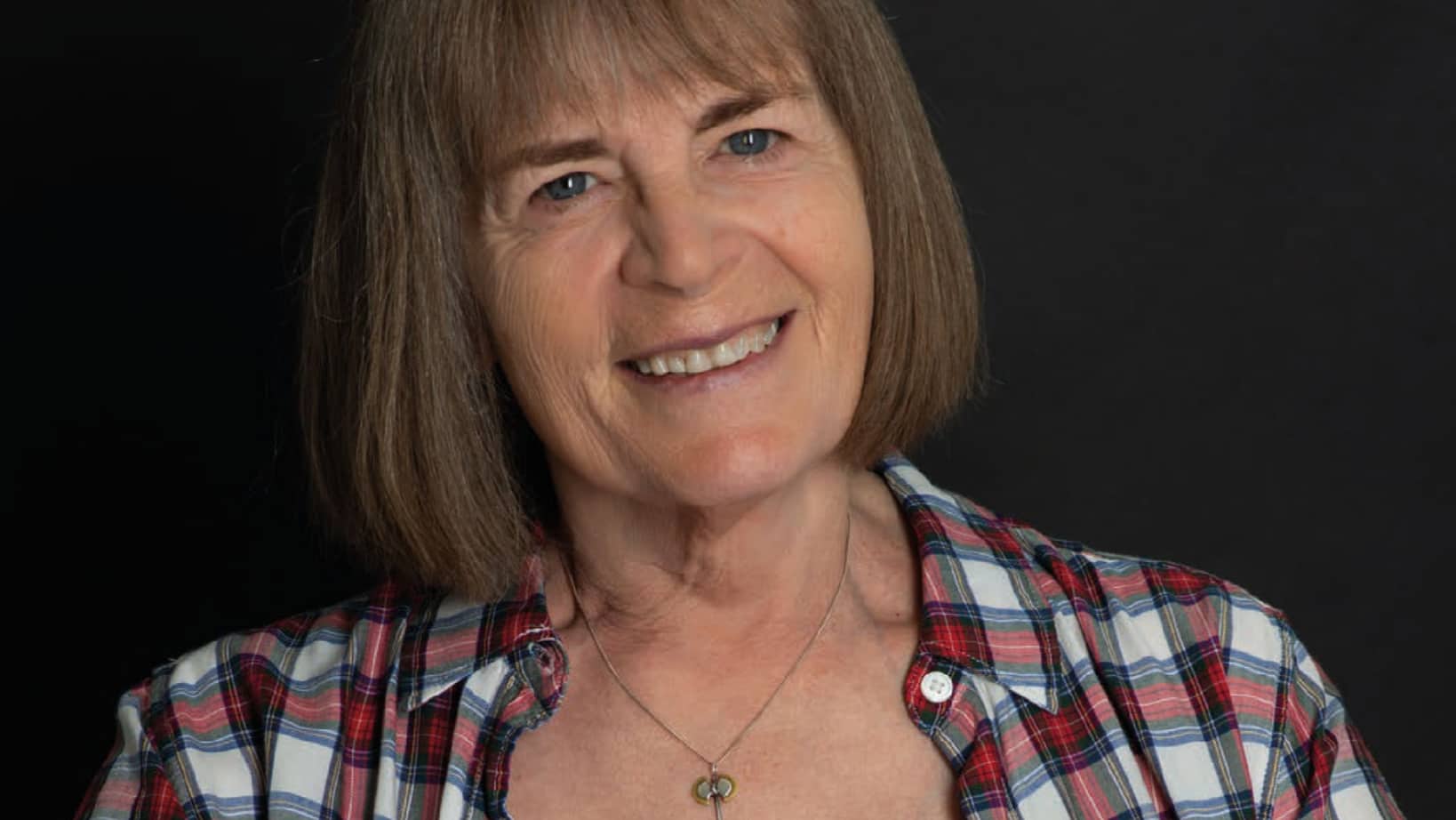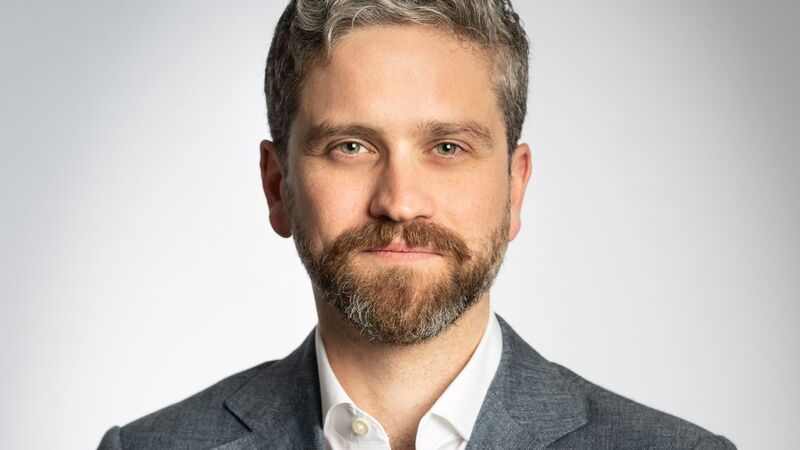You are viewing your 1 free article this month. Login to read more articles.
Zoë Playdon | 'I think I’m probably a hopeless optimist. I believe ultimately in the goodness of people'
 Caroline Sanderson
Caroline SandersonCaroline Sanderson is a non-fiction writer, editor and books journalist. Her books include a travel narrative, A Rambling Fancy: in the F ...more
A watershed legal case in the 1960s is the backbone of Zoë Playdon‘s investigation into how trans rights have regressed over the past 50 years.

Caroline Sanderson is a non-fiction writer, editor and books journalist. Her books include a travel narrative, A Rambling Fancy: in the F ...more
Ewan Forbes’ case is as significant to the trans experience as Oscar Wilde’s is to gay men. With the difference that whereas everyone knows about Oscar, what happened with Ewan has been hidden in the deepest secrecy. But the repercussions which arose from his case transformed trans lives for the worse in ways that are still being felt today, more than 50 years later.”
Via Zoom from her home in south-east London, Zoë Playdon, emeritus professor of medical humanities at the University of London, is talking about The Hidden Case of Ewan Forbes, her enthralling and explosive first book for a non-academic readership. It concerns a transgender man, born the Honourable Elisabeth Forbes-Sempill into an aristocratic Scottish landowning family in 1912. With the financial means to procure synthetic hormones pre-puberty, and the ongoing support of his remarkably progressive mother Gwendolen, Ewan Forbes proceeded to live his life as a man, quietly and without scrutiny, just as he wished. He was able to correct his birth certificate, and in 1952, he married his wife Patty. But then in 1965, after the death of his elder brother William, he was forced to defend his gender in an extraordinary and at times horrifically intrusive court case, in order to prove that the Forbes of Craigievar baronetcy should pass to him, over a male cousin who claimed he was next in line.
If we take Ewan as our starting point, we can draw on 100 years of trans experience which shows that there have never been any problems around the self-determination of trans people, or around elective medical procedures. And yet suddenly there is this desire to close all of that experience down
The case took place behind closed doors, and afterwards was hushed up, the documentation placed entirely off limits, until the 1990s, when then home secretary Michael Howard ordered its disclosure after repeated requests by the former Labour MP Lynne Jones, with whom Playdon founded the Parliamentary Forum on Gender Identity in 1994. And the reason Playdon believes Forbes’ case was concealed from public scrutiny for so long? Because it provides a potential legal precedent not only for trans rights, but also for overturning the tradition of male primogeniture that has underpinned the British establishment for centuries.
Playdon came to this shocking conclusion after going through the 500 pages of transcripts which document this watershed case. Then her agent, Sarah Ballard at United Agents, suggested that she make Ewan Forbes the focus for telling the story of how trans people had previously enjoyed full equality and “how that equality had been quite deliberately removed”. And so now in The Hidden Case of Ewan Forbes, drawing on more than 30 years’ experience of frontline work in LGBTI human rights—including legal cases where she worked with the likes of Baroness Helena Kennedy QC—Playdon blows this astonishing case wide open. Alongside Forbes’ story, she charts the shifting sands in how the medical profession has treated trans people. And she also takes in the experiences of other trans men and women, including painter Lili Elbe, upon whose life a novel and subsequent film, “The Danish Girl”, was loosely based; as well as 1960s Vogue model and trans activist April Ashley MBE.
The counter argument
What Playdon documents runs entirely counter to our received view that the 1960s heralded a more liberal era in terms of our attitudes to sex and gender. She argues that in the intervening five decades since Forbes’ case was heard, trans rights have increasingly been undermined. Our now-systemic transphobia has resulted partly, she shows, from relatively recent pseudo-science which has led being trans to be equated with mental illness, despite a lack, says Playdon, of “scientific, objective evidence for this”. While in the 1930s, medicine recognised that birth sex might be fluid rather than fixed as male or female, the medical and legal narrative dating from the 1960s that surrounds trans people to this day is quite wrong, she says. “If we take Ewan as our starting point, we can draw on 100 years of trans experience which shows that there have never been any problems around the self-determination of trans people, or around elective medical procedures. And yet suddenly there is this desire to close all of that experience down.”
I’m interested to know how Playdon’s varied and distinguished CV as a teacher, senior civil servant, academic (she has five degrees, including two doctorates) and as an LGBTI activist has coalesced in the writing of The Hidden Case of Ewan Forbes, a remarkable blend of history, medicine, law, politics and dogged detective work. “My discipline of medical humanities is a relatively new subject, concerned with improving patient care by the application of humanities thinking. In terms of my own, practice-based medical humanities, we work directly with clinicians, often senior consultants and GPs, to help them make changes to improve both their working lives, and quality of life and care for their patients. If I had to point to the thread that runs all the way through my career, it would be the fact that I have always been concerned with change directed at improving equality.”
Her preoccupation with Forbes’ case began as a research project after she had retired, in the wake of the Succession to the Crown Act of 2013, which removed the precedence accorded to the male gender in terms of the royal succession. “I had always known the broader concept of primogeniture was an issue in trans civil liberties, but I thought that after the Act of 2013, things would get sorted. In the past few years, the issue of male primogeniture has repeatedly been raised in parliament, but each time the matter has been closed down. And the only reason for that, as far as I can see, is the self-interest of a small number of extremely wealthy, aristocratic people”.
Ironically, Ewan Forbes himself was born into such privilege: his mother Gwendolen was a close friend of Queen Mary, and her husband John (the so-called “Auld Laird”) was aide-de-camp to King George V. But while this initially enabled Forbes to access the pioneering endocrinal treatment he needed, the legal case later exposed him, as a member of the landed gentry, to a level of public and press scrutiny that was intensely painful to such a private and upstanding individual. Without going into spoiler details here, it was a case he eventually won and went on to prove he was able to occupy the position and responsibilities of his title as ably as any cis man. But with the hushing up of the case, the repercussions for trans people were profound.
My conversation with Professor Playdon—who was born into a working-class family in the Black Country, and was the first person in her family to go to university—is characterised by an openness and a geniality that is worlds away from the polarised vitriol which characterises much of the current so-called debate around trans rights. Her dry and subversive sense of humour is frequently on display; at one point she reminds me that we all start out as biologically female in the womb, and “then if you’re unlucky you get to be male”.
But, I say, it must be demoralising, not to say distressing, after more than 30 years of frontline campaigning for LGBTI rights, still to be fighting the same battles. How does she keep herself going? “I think I’m probably a hopeless optimist. I believe ultimately in the goodness of people. I think people do want to do the right thing, it’s just a question of taking some time and patience so they can understand what’s at stake. At the end of the day, the job of a philosopher is to make arguments available, not to impose them. You have to give people the opportunity to change. And that’s really been my whole career: making the ethical argument, and saying to people, ‘If you go down that route, this is the suffering you will cause. Is that really want you want to do?’”
Book extract
Most people are unaware that until the late 1960s, trans people lived in complete legal equality with everyone else. Ewan was the reason that changed, and since his life spanned nearly the entirety of the twentieth century, it gives us a glimpse into almost a hundred years of trans history. His story begins in the Victorian period, when the Viennese professor of sexology, Richard von Krafft-Ebing, published the first medical description of being trans, and it ends in the present day, with increasing attacks on trans people’s human rights in the US and the UK.
It draws on five years of research, 30 years of frontline LGBTI activism, and a lifetime in academia. Ewan’s hidden court case, finally decided in 1968, marks a tipping point between the trans equality that existed in the past and today’s trans discrimination. More broadly, it is also a story of how freedoms we all take for granted can be instantly lost.









